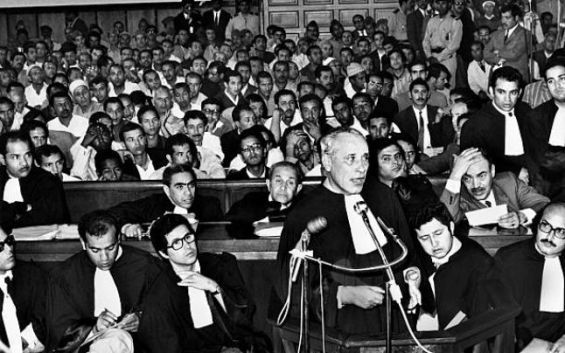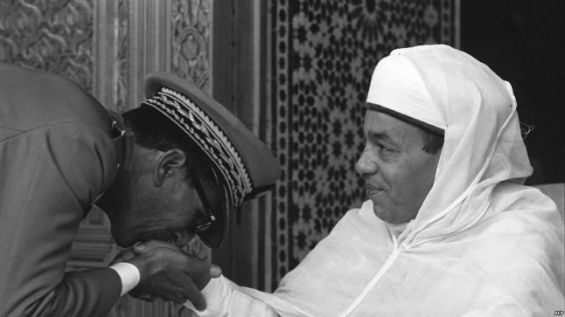On March the 3rd, 1973, Morocco was faced with one of the last armed actions led by the opposition. A group of leftists from the National Union of Popular Forces (UNFP), and after attending paramilitary trainings in Syria, Libya and Algeria, wanted to launch an armed movement through the Middle Atlas. They chose the commune of Moulay Bouazza to be their place of action.
Their plan was a joint project that attracted big names at the time. Coups and armed movements were numerous at the time. Morocco witnessed, in 1971 and 1972 two unsuccessful coup attempts. Choosing Moulay Bouazza, a village located in the Khenifra province, was also part of the plan. The movement was inspired by guerrilla leader Che Guevara who settled down in La Higuera, Bolivia, to launch his revolution in Latin America.
Despite all efforts, the group of leftists had a rendezvous with failure. Unlike Che Guevara who was captured and killed by the Bolivian troops, on October the 9th, 1967, Mohamed El Basri who was heading the rebellious group walked away from this incident without a scratch.
The figurehead of UNFP was then exiled. The presidents of Algeria, Iraq, Syria and Libya welcomed him with open arms. On the other hand, in Morocco and within his own party, he was part of the group that opposed the rise of Abderrahim Bouabid’s followers, who were determined to break up with the use of weapons. During this period, Fqih Basri was dead set on overthrowing King Hassan II’s regime.
A failing attempt
Launched in a hurry, just after the 1972 Moroccan coup attempt led by General Mohamed Oufkir, the plan was doomed to fail. In fact, the person chosen to oversee the organization of the armed action had allegedly made mistakes while choosing the «correspondents’ network» in both Morocco and abroad.

This mistake had allowed the intelligence services to reveal the exact number of fighters hired to perform the plan, their hiding places and the number of weapons they had. And as strange as it might sound, after the operation failed, some members of the «correspondents’ network» were awarded and granted positions in the public administration.
Thanks to some spies, the services were aware of the movement’s steps. Consequently, authorities were well prepared before taking action. Members of the Army in Agadir, Meknes, Marrakech and Casablanca were ordered to move towards Beni Mellal and Khenifra.
Operation Moulay Bouazza and Mohamed El Basri’s plans were aborted, taking the lives of young fighters from UNFP.
After they were tried, a group of sixteen activists were executed on November the 1st, 1973. Some of them were lucky enough to flee Morocco, joining Algeria and Syria, where they spent decades after they were repatriated by Abderrahim El Youssoufi.
The failure of the Moulay Bouazza operation has had repercussions on the Moroccan and regional scene. Nationally, it served as an argument for Abderrahim Bouabid and his followers to break up with Mohamed El Basri's party. They then founded the Socialist Union of Popular Forces (USFP), which called for democratic reforms.
In the Maghreb, the failure mainly convinced Algeria, in its quest to weaken the regime of Hassan II, to rely on the Polisario’s card. Since then the neighboring country has continued to provide military and political assistance to the separatist front.





 chargement...
chargement...













